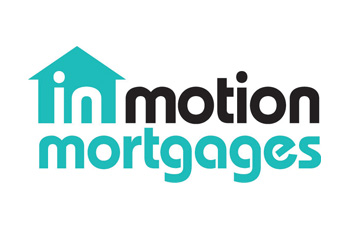Exploring the Various Sorts Of Equity Release Mortgages Available Today
Equity Release home mortgages present different choices for home owners aged 55 and over. equity release mortgages. These monetary items accommodate various needs and preferences, allowing individuals to gain access to funds from their residential property. From life time home mortgages to shared recognition mortgages, each type supplies unique advantages. Understanding these choices is essential for making notified choices. What aspects should one take into consideration when choosing the most ideal equity Release strategy? The information that adhere to might drop light on this essential subject
Recognizing Equity Release Mortgages
Equity Release home mortgages provide homeowners, typically those aged 55 and over, with a way to access the worth locked up in their property without needing to offer it. This monetary option allows individuals to convert a part of their home equity right into cash, which can be used for various objectives, such as home renovations, repaying debts, or funding retirement.Equity Release can take various types, however it essentially involves loaning versus the worth of the home while keeping possession. House owners can choose to get a lump amount or a collection of smaller settlements, depending on their monetary requirements and preferences.Additionally, the amount offered for Release is affected by the property's value, the homeowner's age, and specific lender requirements. Overall, understanding equity Release mortgages is essential for homeowners to make informed decisions about taking advantage of their home's equity while thinking about the long-lasting implications.
Lifetime Mortgages
Lifetime mortgages stand for among one of the most popular kinds of equity Release. This monetary product allows homeowners, commonly aged 55 or older, to obtain versus the value of their residential or commercial property while keeping possession. The funding, which is protected versus the home, builds up passion gradually however does not require month-to-month payments. Rather, the lending and accrued interest are repaid when the property owner passes away or moves into long-lasting care.Lifetime home loans offer versatility, as borrowers can choose to receive a lump sum or choose a drawdown center, accessing funds as needed. Importantly, lots of plans included a no-negative-equity assurance, guaranteeing that debtors will never owe greater than the value of their home. This attribute supplies comfort, allowing individuals to appreciate their retirement without the fear of depleting their estate. In general, life time mortgages act as a feasible option for those seeking economic assistance in later life.
Home Reversion Plans

Drawdown Life Time Mortgages
While several homeowners look for methods to access their riches, drawdown lifetime mortgages present a flexible choice that allows individuals to Release funds gradually. This kind of equity Release home loan enables house owners to borrow versus the value of their residential property while keeping possession. Unlike traditional life time home mortgages, drawdown plans allow customers to access a part of their equity upfront and take out extra funds as needed, as much as an established limit.This function can be specifically beneficial for those who wish to manage their financial resources very carefully, as it reduces interest buildup by only charging passion on the amounts attracted. Furthermore, drawdown life time mortgages often come with a "no negative equity assurance," guaranteeing that borrowers will certainly never ever owe even more than their home's worth. This alternative suits retirees that want economic security and flexibility, permitting them to meet unforeseen costs or maintain their lifestyle without having to offer their property.
Enhanced Life Time Mortgages
Improved Life time Mortgages supply distinctive benefits for eligible homeowners seeking to Release equity from their buildings. Comprehending the qualification criteria is important, as it determines that can take advantage of these specialized finances. However, it is additionally important to examine the potential drawbacks related to improved choices, making sure an all-around point of view on their usage.
Eligibility Criteria Explained
Comprehending the eligibility standards for Improved Life time Mortgages is vital for prospective candidates looking for to access the equity in their homes. Commonly, candidates have to be aged 55 or older, as this age demand is typical in the equity Release market. Home owners need to have a residential property valued at a minimal threshold, which can vary by loan provider. Significantly, the property needs to be their key residence and in great problem. Lenders commonly evaluate the house owner's health and wellness status, as certain wellness conditions might improve qualification and advantages. Furthermore, applicants need to not have existing significant financial debts secured against the property. Satisfying these criteria permits people to check out Enhanced Lifetime Home loans as a practical alternative for accessing funds linked up in their homes.
Advantages of Improved Home Loans
After clarifying the eligibility requirements, it ends up being obvious that Boosted Life time Mortgages use numerous substantial advantages for house owners seeking to utilize their property equity. Largely, they offer access to a larger lending quantity contrasted to basic life time home mortgages, profiting those with health problems or age-related elements that increase their life span risk. This enhanced loaning capability allows home owners to fulfill different economic requirements, such as home renovations or retirement costs. Additionally, these home mortgages commonly feature versatile payment options, making it possible for borrowers to handle their financial resources much more efficiently. The no-negative-equity assurance further assures that home owners will never ever owe more than their residential or commercial property's value, offering assurance. Overall, Enhanced Lifetime Mortgages offer a compelling alternative for qualified property owners seeking economic options.
Potential Disadvantages Considered
While Boosted Life time Home loans offer numerous benefits, potential drawbacks necessitate careful factor to consider. One considerable issue is the influence on inheritance; the equity launched decreases the value of the estate entrusted to more tips here beneficiaries. In addition, these home loans can accumulate substantial interest with time, leading to a considerable debt that may surpass the original financing quantity. There might additionally be constraints on residential or commercial property modifications or rental, restricting house owners' flexibility. Improved items often call for details health and wellness conditions, meaning not all house owners will qualify. Ultimately, taking care of the fees and fees connected with these home mortgages can be complicated, possibly causing unexpected expenses. As a result, people should thoroughly analyze their situation and get in touch with economic advisors prior to continuing.
Shared Admiration Home Mortgages
Shared Appreciation Home loans stand for an unique monetary setup that enables property owners to access equity while sharing future building value increases with the loan provider. This approach uses potential advantages such as decreased regular monthly settlements, but it likewise comes with drawbacks that have to be carefully considered. Recognizing the qualification requirements is important for those thinking about this choice.
Idea Overview
Equity Release mortgages, especially in the form of common gratitude home loans, supply property owners a special economic solution that permits them to access funds by leveraging the value of their residential or commercial property. In this setup, a loan provider gives a car loan to the property owner, which is normally paid back through a share of the property's future gratitude in worth. This means visit this page that when the homeowner markets the building or dies, the lending institution obtains a percent of the boosted worth, rather than simply the initial finance quantity. Shared recognition mortgages can be appealing for those looking to supplement their revenue or money substantial expenditures while maintaining ownership of their home. Nevertheless, the monetary effects of common gratitude must be carefully thought about by prospective debtors.
Downsides and benefits
Although shared recognition home loans can supply considerable monetary advantages, they additionally feature remarkable drawbacks that possible debtors need to take into consideration. These home mortgages permit home owners to gain access to equity in their buildings while sharing a part of any type of future gratitude with the lender. This plan can be helpful during times of rising building worths, supplying significant funds without monthly repayments. However, the main drawback is the prospective loss of equity; house owners may finish up with significantly decreased inheritance for heirs. Additionally, the intricacy of the terms can lead to misconceptions concerning repayment commitments and the percent of gratitude owed. It is vital for debtors to weigh these variables very carefully before dedicating to a common recognition home loan.

Eligibility Demands
What criteria must house owners fulfill to get a common recognition mortgage? Mainly, prospects should go to the very least 55 years of ages, ensuring they are within the target market for equity Release items. Additionally, the residential property must be their key home and generally valued above a defined minimum limit, typically around ? 100,000. Lenders additionally assess the homeowner's financial circumstances, including earnings and exceptional financial debts, to determine they can take care of the home loan sensibly. Notably, the residential property needs to be in excellent problem and free from considerable legal encumbrances. House owners should likewise have a clear understanding of the terms, consisting of just how recognition will be shown to the lending institution upon sale or transfer of the building, as this affects total returns.
Selecting the Right Equity Release Choice

Frequently Asked Concerns
What Age Do I Required to Be for Equity Release?
The age requirement for equity Release usually starts at 55 for most plans. Some suppliers may offer options for those aged 60 and above, mirroring varying terms based on individual circumstances and lender plans.
Will Equity Release Impact My Inheritance?
Equity Release can affect inheritance, as the quantity borrowed plus passion minimizes the estate's worth. Beneficiaries might get less than prepared for, depending upon the building's gratitude and the overall debt at the time of passing.
Can I Relocate Residence With Equity Release?
The inquiry of moving residence with equity Release arises frequently. Typically, individuals can transfer their equity Release plan to a brand-new residential property, but particular terms might apply, needing consultation with the lender for support.
Are There Charges Related To Equity Release Mortgages?
Charges related to equity Release home mortgages can include arrangement charges, site web appraisal charges, and lawful prices. Additionally, there may be early payment costs, which can affect the general cost and monetary ramifications for the customer.
How Does Equity Release Effect My Tax Obligation Scenario?
Equity Release can influence one's tax obligation scenario by possibly increasing gross income, as launched funds are taken into consideration funding. It typically does not sustain immediate tax liabilities, making it essential to get in touch with an economic expert for individualized guidance.
Final thought
In recap, the selection of equity Release home mortgages available today offers home owners aged 55 and over several paths to access their residential property's value - equity release mortgages. Whether selecting a lifetime mortgage, home reversion strategy, or other choices, each choice provides unique benefits tailored to private economic demands. Cautious factor to consider and examination with a monetary advisor are vital to ensure the picked equity Release solution straightens with economic situations and personal objectives, eventually assisting in notified decision-making for a protected monetary future. Equity Release home loans present various alternatives for homeowners aged 55 and over. Equity Release mortgages offer property owners, usually those aged 55 and over, with a means to access the worth linked up in their home without requiring to offer it. Improved Lifetime Home mortgages provide distinct benefits for eligible property owners seeking to Release equity from their buildings. Equity Release mortgages, specifically in the kind of common gratitude mortgages, offer house owners a special financial solution that allows them to accessibility funds by leveraging the value of their home. In recap, the variety of equity Release mortgages readily available today provides home owners aged 55 and over numerous paths to access their property's worth
Comments on “Expert Advice on Navigating Equity Release Mortgages”